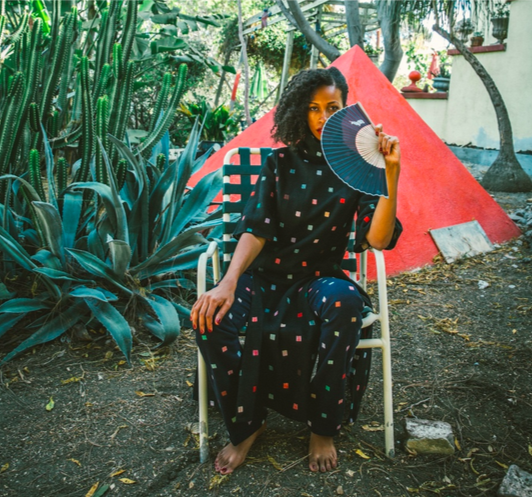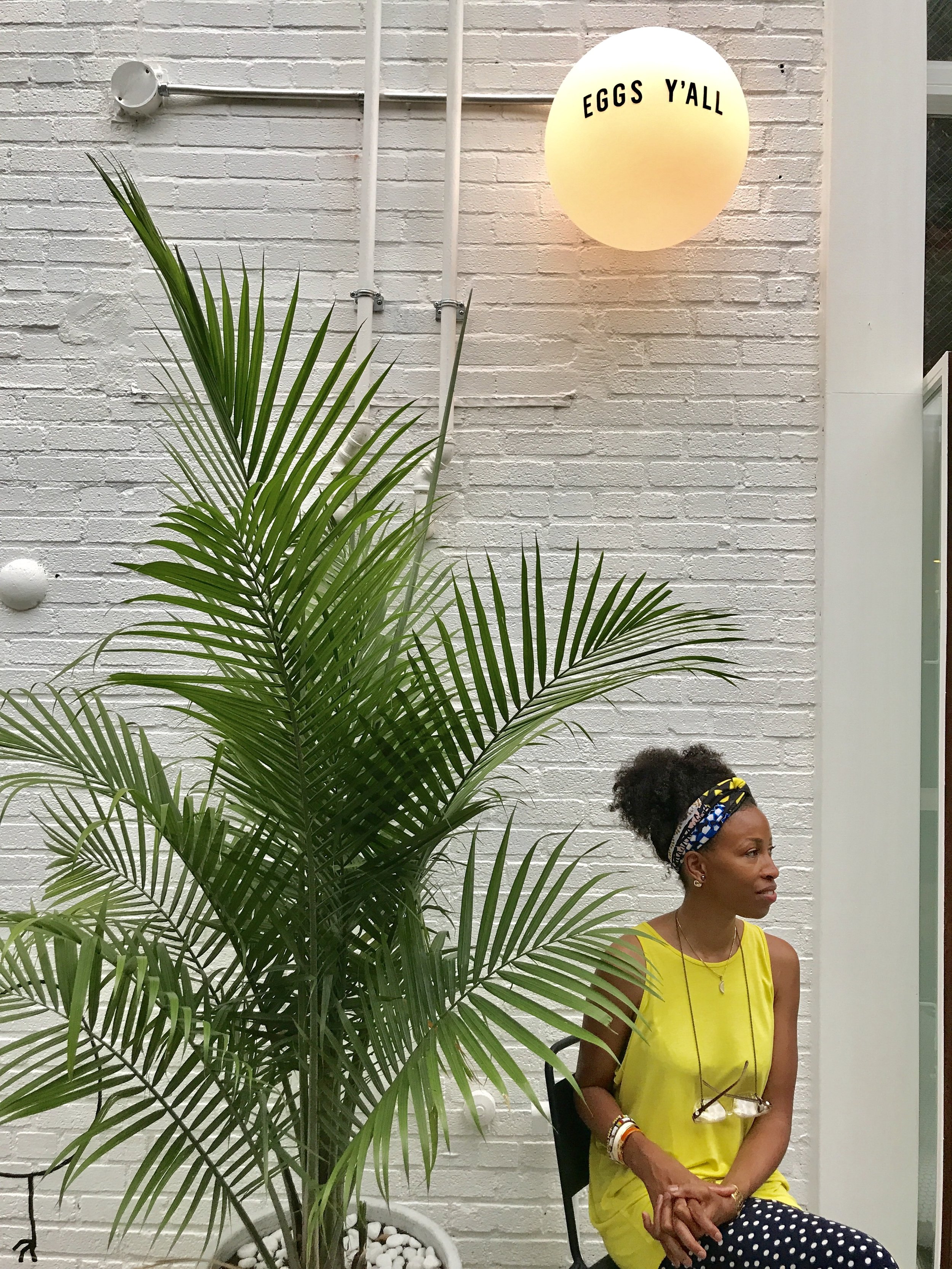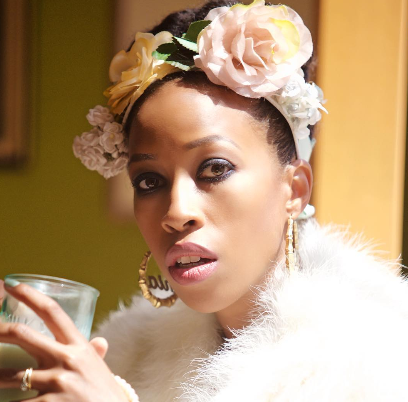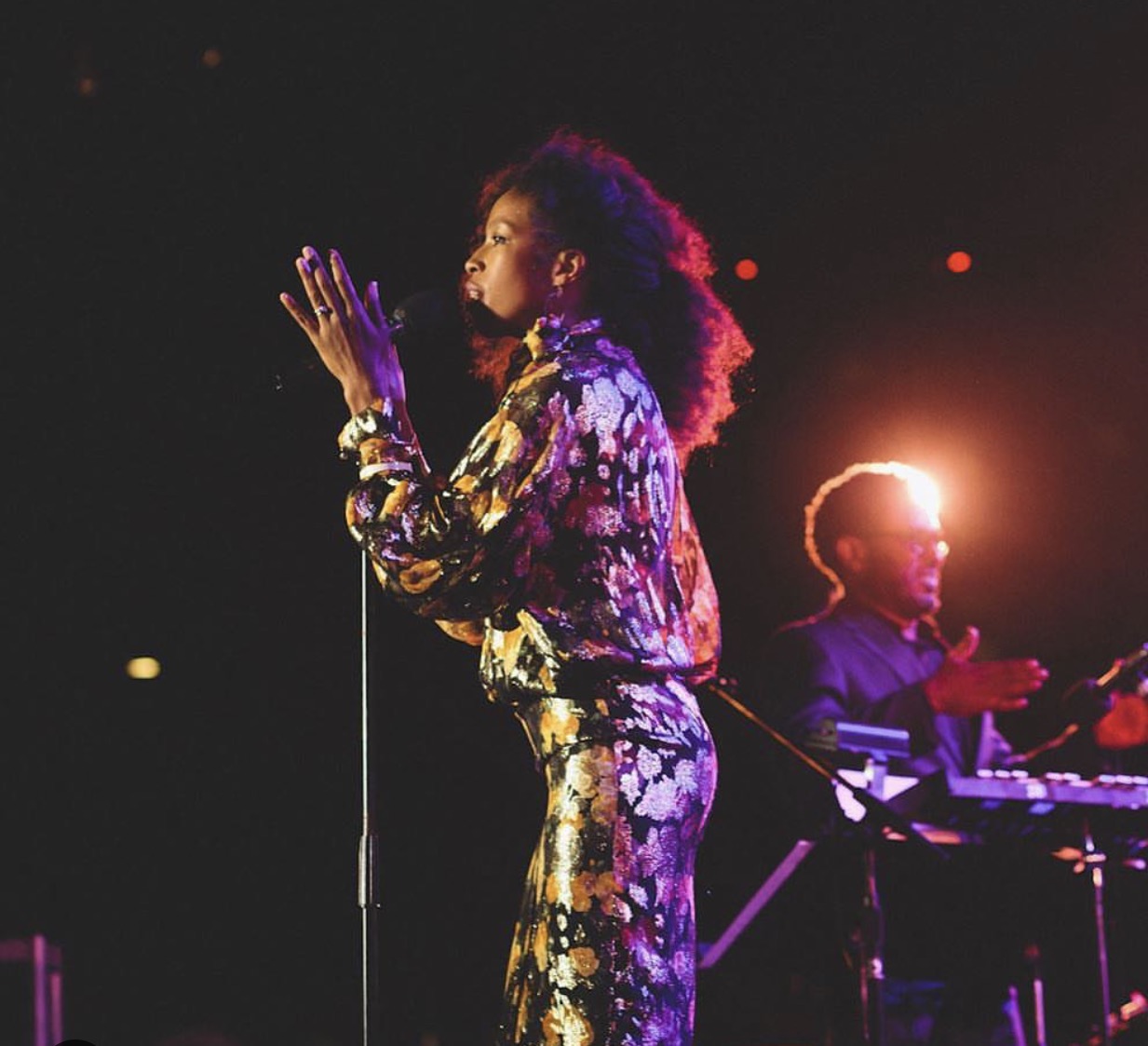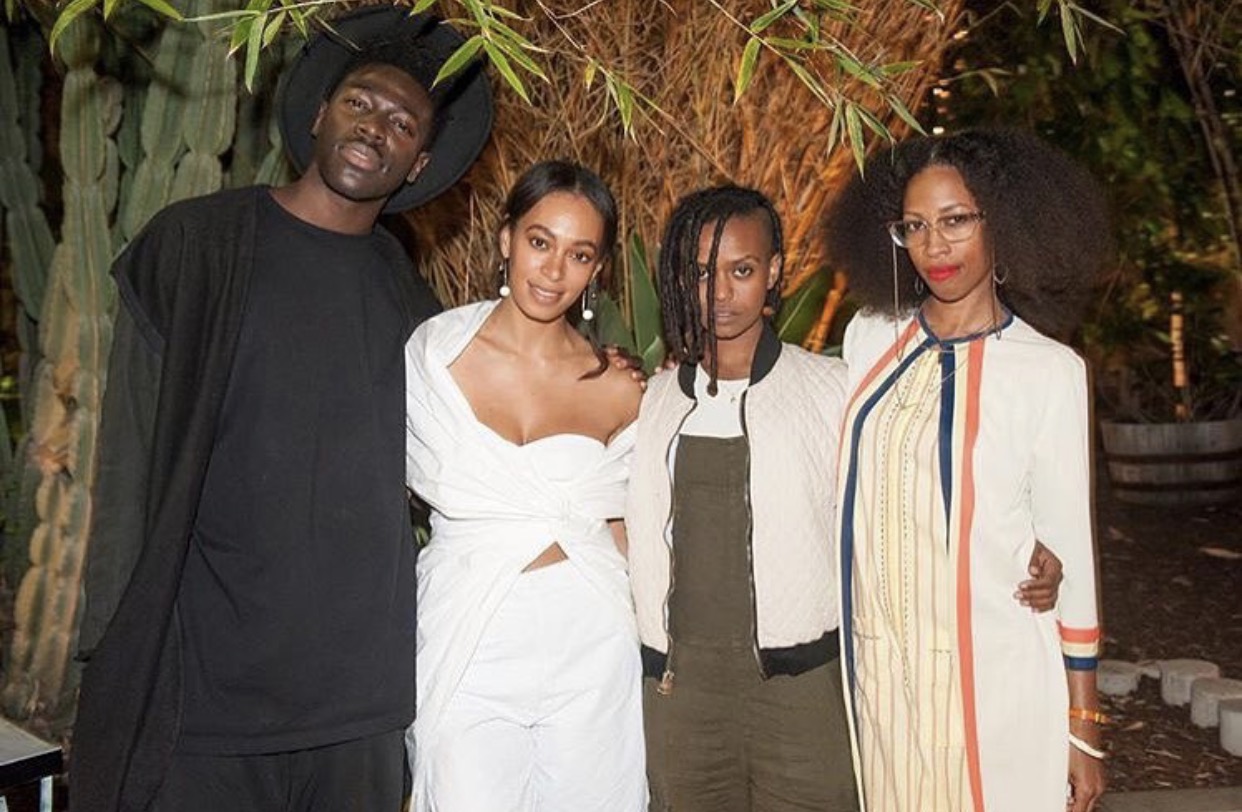NIA ANDREWS
Name: Nia Andrews
Title: Artist/Writer/Singer/Songwriter/Actress
Lives: Los Angeles, CA
Works: Globally
Select Projects:
"From Here" EP: https://niaandrews.bandcamp.com/album/from-here
Vocals: "A Seat at the Table" (Solange)
"Colours" EP
Resident at CHURCH (Mark de Clive-Lowe)
Vocals/Writing/Collaborating: Janelle Monae, Lauryn Hill, Mary J Blige, Common, Blu, Shafiq Husayn, Jill Scott
CreativeTypes: How did you get started?
Nia Andrews: Being an artist myself has been a journey. I had lots of twists and turns of enjoying music for fun, but not wanting to make a career out of it because I didn't want to commodify my love for music (it's very purist), so I stepped away from it and was working as a ghostwriter in music video/TV/Film, but feeling this huge void because somehow I wanted to get in music. I didn't know in what capacity or way because by then I stopped playing piano, I wasn't pursuing music at all. So I took a grunt work gig as a Roadie first, just to get my feet wet in the professional music business. Then I took another job as a tour assistant and that's when I started to sing.
“Artists who own their own masters because they’re completely independent, that’s not small at all. There are huge artists who are trying to buy their masters back because some company owns their shit. I don’t have that problem right now.”
CT: When did you feel that you were an Artist?
NA: I wasn't always a singer. Musician, yeah, Singer no, Artist, no...if I get really caught up in the semantics of what that is and what that means as a background singer, no one's looking at the background singer, they're looking at the artist. Musicians like me are looking at those people, but the average fan is there to support the marquee artist and to step into those shoes, they're very big shoes. You're shouldering the responsibility of everything you're seeing on that stage - like you become a representative of that - whether it's good or not (whether it's the base player f*cking up or not), people are gonna look at you. Those are some monstrous shoes to fill.
It takes a lot of confidence to say, okay now I'm going to become an artist. It's been baby steps. I feel like the universe has been inching me forward like, okay let's see if she is ready to be in these environments - behind the scenes, observing...do you have the temperament for this? Starting background singing after doing so much grunt work - like taking clothes to cleaners, buying backwoods, picking up cables, wheeling the artist's bags, packing their bags, picking up their dirty drawls...off the floor, like wiping the sweat off their face, like grunt work! Don't nobody want to do that. But for me it was a privilege to see what this looks like and start from the beginning again because at this point, I had a career as a writer. I was making good money and I went to making no money, but because my soul was like; you're not doing music?...you're writing concepts for music videos for other artists but that's still music adjacent.
CT: You've worked with some huge artists (i.e. Lauryn Hill, Mary J Blige, etc.), how was the transition to becoming a solo artist?
NA: I knew that I had a little bit of a voice but I was just really hard on myself, like "I can't really sing, sing like that". It wasn't until I got called in for an audition for a really big artist and had to do everything she was able to do - that was like an aha moment where I realized "oh, I DO have a voice!".
I was writing for other artists, and just seeing that other people's hustles that I was trying to write for weren't always as urgent as mine, and songs were becoming more personal. I was like; who is going to sing these songs? I thought I will just be a songwriter but I was approaching a lot of closed doors. In the meantime I noticed, ok when I sing my songs, the doors were opening. I was finally like, I think the universe is saying that you're supposed to be singing these songs. When I tell you I was kicking and screaming because I didn't want anyone looking at me, but now it makes sense. I envy those people who always knew since they were four years old...I was not that person...at all.
CT: What do you wish you would've known about becoming an artist?
NA: That it was okay to really do whatever the f*ck you want to do, because now it's really like the wild west in music. At the time I was stepping into my artist shoes, it was right at that moment that the music industry as we knew it was crumbling and a lot of execs and people in that world were scared. So I started out shopping to people and they were like "oh my God, she's amazing!", and I almost signed a deal and I'm glad that I didn't. Because now you can do so much on your own (the internet is ferocious), and yes it's amazing to have this machine pushing you forward. A lot of people that you see and think it's this organic rise, when most of what we're saying about an artist, we've been informed to say that by their press release. In the beginning I really tried to follow what I perceived to be the rules, and now I'm seeing that there are less rules than I thought. I'm having fun enjoying the adventure of putting myself out there on my own terms. Artists who own their own masters because they're completely independent, that's not small at all. There are huge artists who are trying to buy their masters back because some company owns their shit. I don't have that problem right now.
CT: What are some challenges in music?
NA: One of the biggest challenges right now is that we have a lot of autonomy. You don't need to wait for a label to upload your music on Apple Music or Spotify or SoundCloud, but there's a lot of noise out there, so how do you make a splash in the ocean? How do you not become just another drop in the ocean?
CT: What are your thoughts about being trained as an artist?
NA: Not everyone's an Esperanza Spaulding...she is like, whaat? She was trained, she is super on-point with her music and her artistry, but a lot of artists I know are not trained. What would've been nice for me is understanding the rudiments, knowing what I'm doing on purpose instead of; oh I happened to find that, how did I get that? Like knowing in a very controlled way how I'm going to manipulate my voice. I know trained singers who know exactly what to do to get their voice a certain way if they're tired or hoarse or sick, what they need to do to get their voices to a state where it sounds exactly how they want it to sound. But on the flip, some trained musicians and artists that I know are so trained that they have a hard time finding their own voice because they have so much training. So if I had to choose between the two, I like that I sound like myself.
CT: Is songwriting a practical way to survive in the music industry?
NA: I don't think the music industry is practical. I mean you can say, yeah I'm going to be a songwriter...okay, who are you going to place your song with? There is no paved road in this. I think you gotta' be a little off to be doing this (laughs). My dad was a Grammy winning songwriter and I was always inspired by his passion for teaching. He was working at Motown, he had a hit song on the radio, but he still taught. It wasn't a fallback. It wasn't an "I'm driving Uber for extra money" job, it was "I'm really passionate about teaching and I like music too". To this day, this fool still gets risidual income checks from songs he's written. I'm not mad at that (I don't think anybody can be), but that's not everybody's skill. I think there is a luck component in it too, because you can write songs and it doesn't mean it's going to be placed, or come out, or make any coins.
CT: What about your experience with getting signed to a label?
NA: It's an age-old story of something almost happens, then there's this promise of it happening but it doesn't happen. There's a lot of artists who have that story. I think Alicia Keys got dropped more than once from her label. A lot of artists have that story of; they were signed then their project was shelved, then they were signed, then they were dropped. The take-away is to persavere because like that quote says, when one door closes another one opens. I was thinking like, this is happening! And it didn't happen in that way, but I found so much more of myself because I had to walk the road myself versus being carried on a chariot. I think everything has been happening exactly the way it's supposed to happen. One of my general goals is to have the freedom and autonomy to be able to create the way that I want for the rest of my life.
CT: What do you feel is the life span for this type of career?
NA: In genres like Jazz there's no ageism. You got guys playing until they are ninety years old on that stage and that's to be expected. You start young and you play for the rest of your life. I think that is one genre where they've really figured that out. I'm glad that I was exposed to that because it makes me feel like that's available to me. I don't need to be in some patent leather with dancers and fireworks behind me tryna' be sexy at sixty-five years old. I just want to sit at the piano and play and sing...at the little fesitvals. Or the big festivals, you know? I just want to make, and that's what I'm doing. I think it's important for me to show my son that too. I really put the heavy foot on the pedal when I became a mom. I can't be like, I don't know what I want to do. He needs to see that life doesn't end when parenthood begins. I want to be an example. He's going to remember me grindin'.
Follow Nia online!
Website: niaandrews.com
Instagram: @nianiaandrews
Youtube: youtube.com/niamanian
Facebook: facebook.com/niaandrewsmusic
Twitter: @niaandrews
